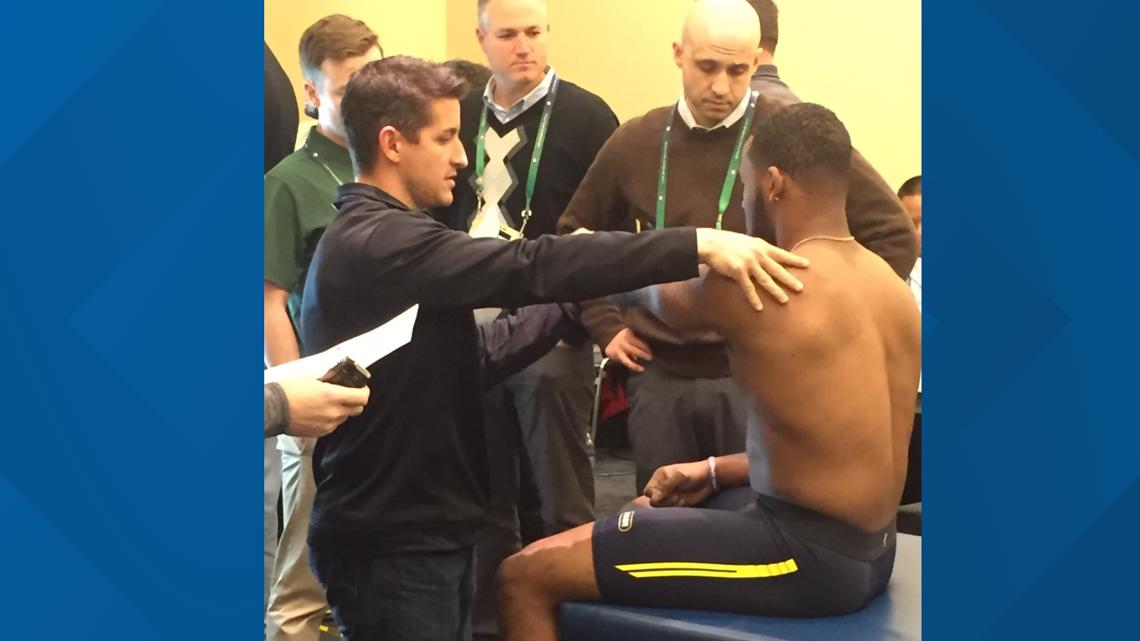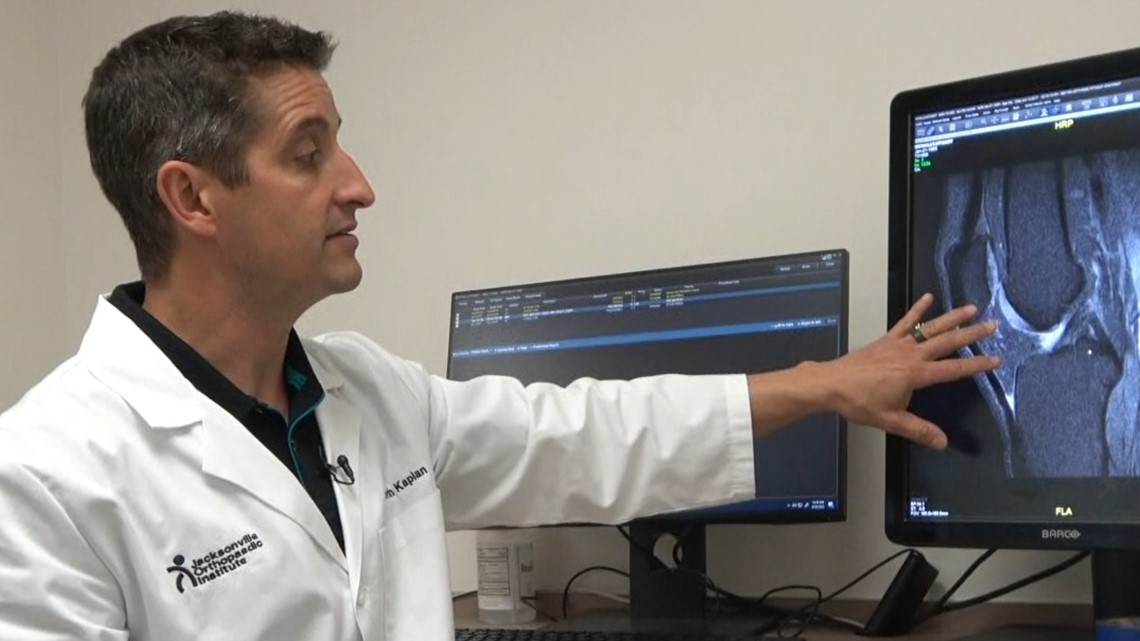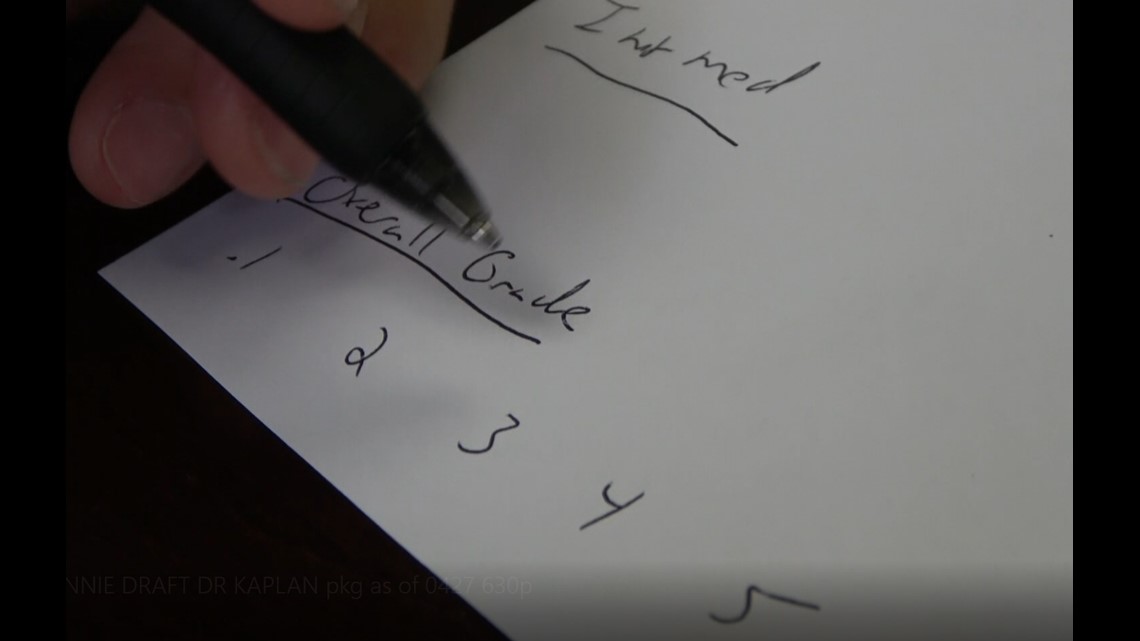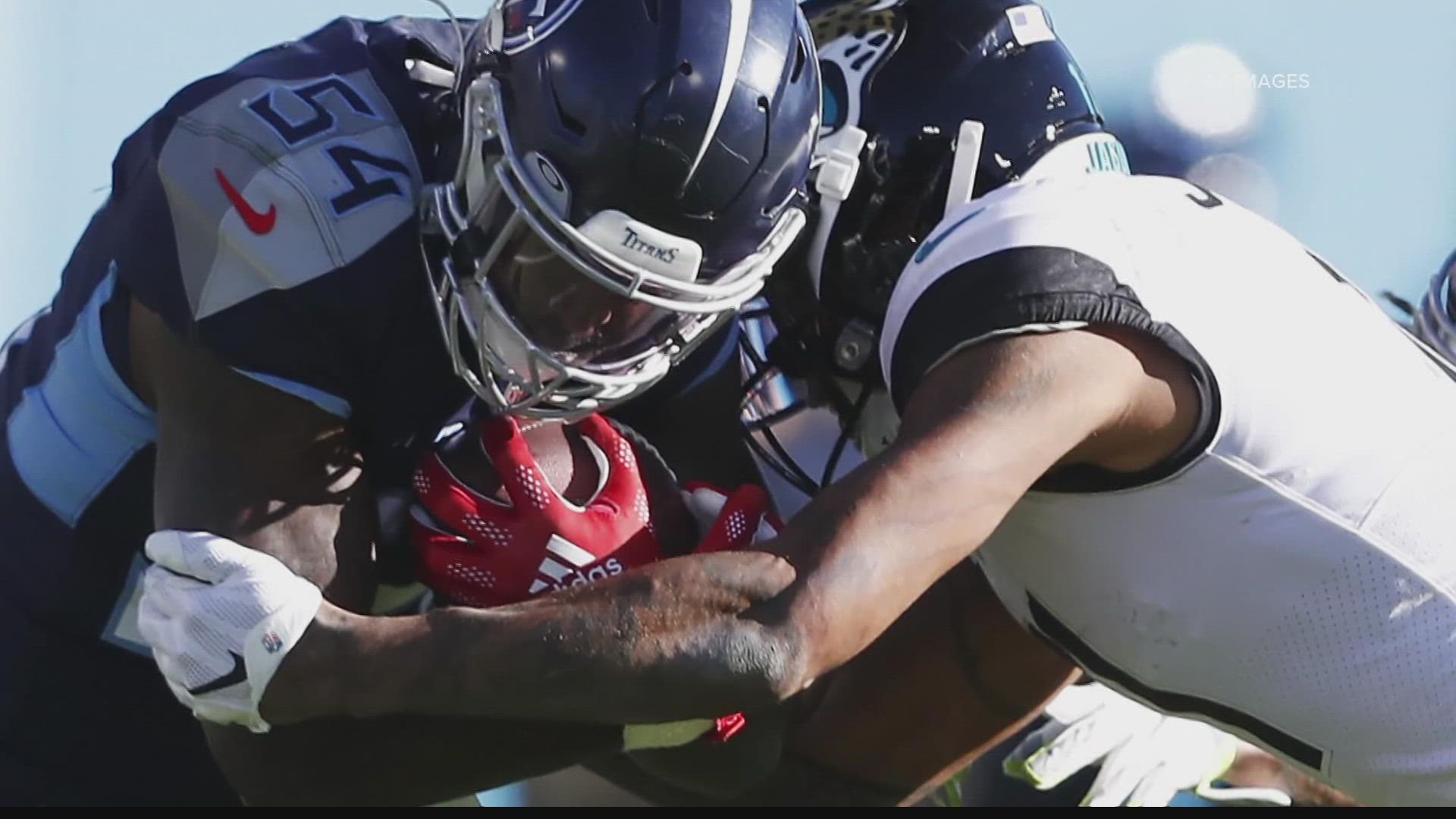JACKSONVILLE, Fla. — "Its detective medicine," says Dr. Kevin Kaplan.
It's a good way to put it. He has a mission that carries a lot of power, and it's not an easy one.
He is tasked with digging into a player's health status, figuring out his risk of injury and potential longevity of play.
Millions of dollars and the success of an NFL team are on the line.
Kaplan, an orthopedic surgeon with the Jacksonville Orthopedic Institute, is head team physician for the NFL Jaguars.
About a week before the draft, Kaplan met with Head Coach Doug Peterson and GM Trent Balke to present his findings in the form of a "rating card" on every single player eligible to be drafted.
Kaplan says this year it's about 400 players, with 330 from the NFL Scouting Combine back in late February in Indianapolis.


We asked Kaplan to tell us about what his "detective" work is like from behind-the-scenes.
6 ROOMS YOU DON'T SEE ON TV
Kaplan says his work begins at the combine.
On TV, we see the college players running their hardest to impress the NFL scouts. But, there are six rooms we don't see. Kaplan says, "We sit in a room and bring players in one at a time."
In the room are team doctors, athletic trainers and assistants. They interview each player and do physical exams, which can include MRI and CT scans. The medical personnel compare notes of the players.


"Every year we have the same room with the Jets, Titans, Bengals and Chargers."
But share notes with the Titans, of all teams?
Kaplan answers with a laugh. "That's true," he says, "Whereas on the field we want to beat them every single time," at the combine there's a sense of cooperation.
WHAT IF THE PLAYERS FUDGE THE TRUTH?
Kaplan is used to college players trying to cover up pain or injury.
"Most agents tell them if they're asked a question on how they're feeling," he explains, "just say, 'Perfect. Everything is fantastic.'"
Kaplan's job is to dig beyond the sugar-coating. If a college player missed a game, why? What about injuries dating back even to middle school?
MRI TRUCKS CHURN OUT TEST RESULTS ALL NIGHT LONG FROM UNDER THE FIELD
Kaplan says another part of the detective work involves imaging at the combine.
He says, "Where you watch the Colts play the Jags, beneath the floor is a huge, a huge space with three to four MRI trucks that run all night long. So we get scans coming up at one in the morning. We get them back immediately."
SCOUTS UPSTAIRS HELP THE DETECTIVE WORK
Kaplan says he's careful to listen to the scouts. For example, maybe a player looks good during imaging results, but something is bothering him and could cause trouble down the road.
Kaplan says, "The scouts are upstairs watching them run, and they will call me and relay information to me. They'll say, 'He looks like he's not running normally. He's changed his gait somehow.'"
Now fast-forward two months to the week of the draft.
Kaplan says he has "the big medical meeting" with the team's top brass some six days before the draft.
EACH PLAYER GETS A "RATING CARD" -- 1-5
Kaplan gives every possible draft pick a rating between 1 and 5.
It's a number drawn from several categories, including "general health" and "orthopedics" and "cardiology."


Kaplan says each NFL team has its own ratings system. For the Jags, he says, "One being no risk and then there's medium risk and 5 is a fail."
HOW MANY GOT A PERFECT SCORE?
He says, "I'd say only two or three."
Most players fall in the middle. Kaplan says, "We worry much more about lower extremity issues then upper extremity issues."
During the multi-day draft process, Kaplan will be inside the stadium with the selection team and his electronic files on the hundreds of players he's investigated.
After years of doing his medical detective work. Kaplan says he still loves the job.
He's optimistic about this year's season.

